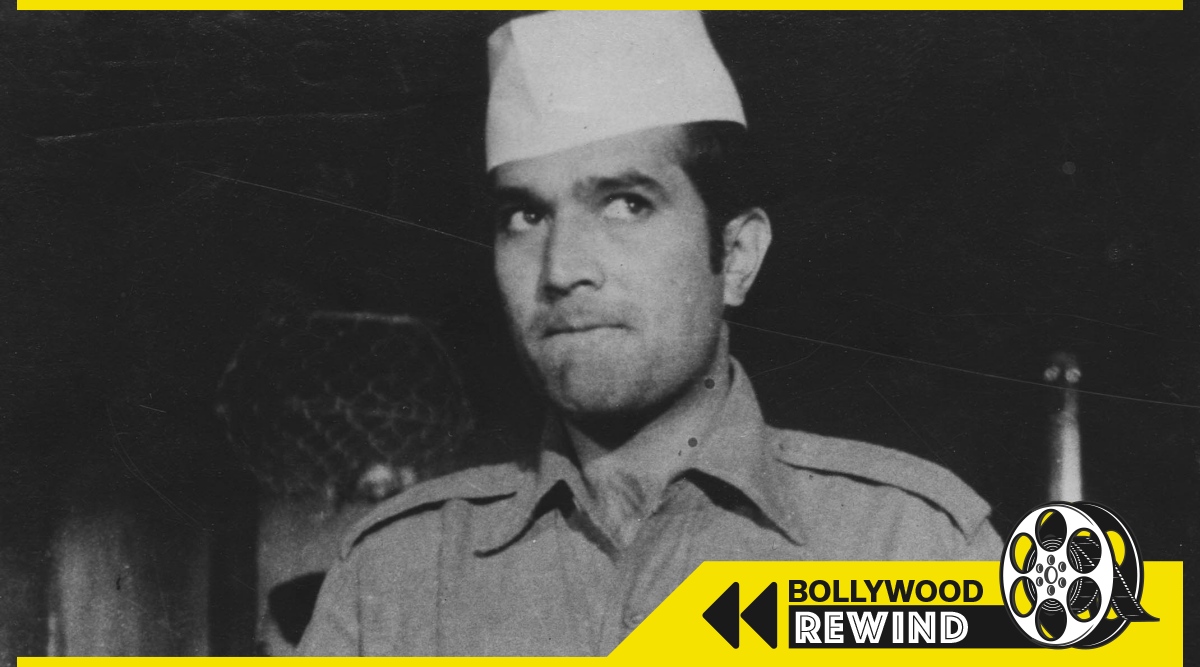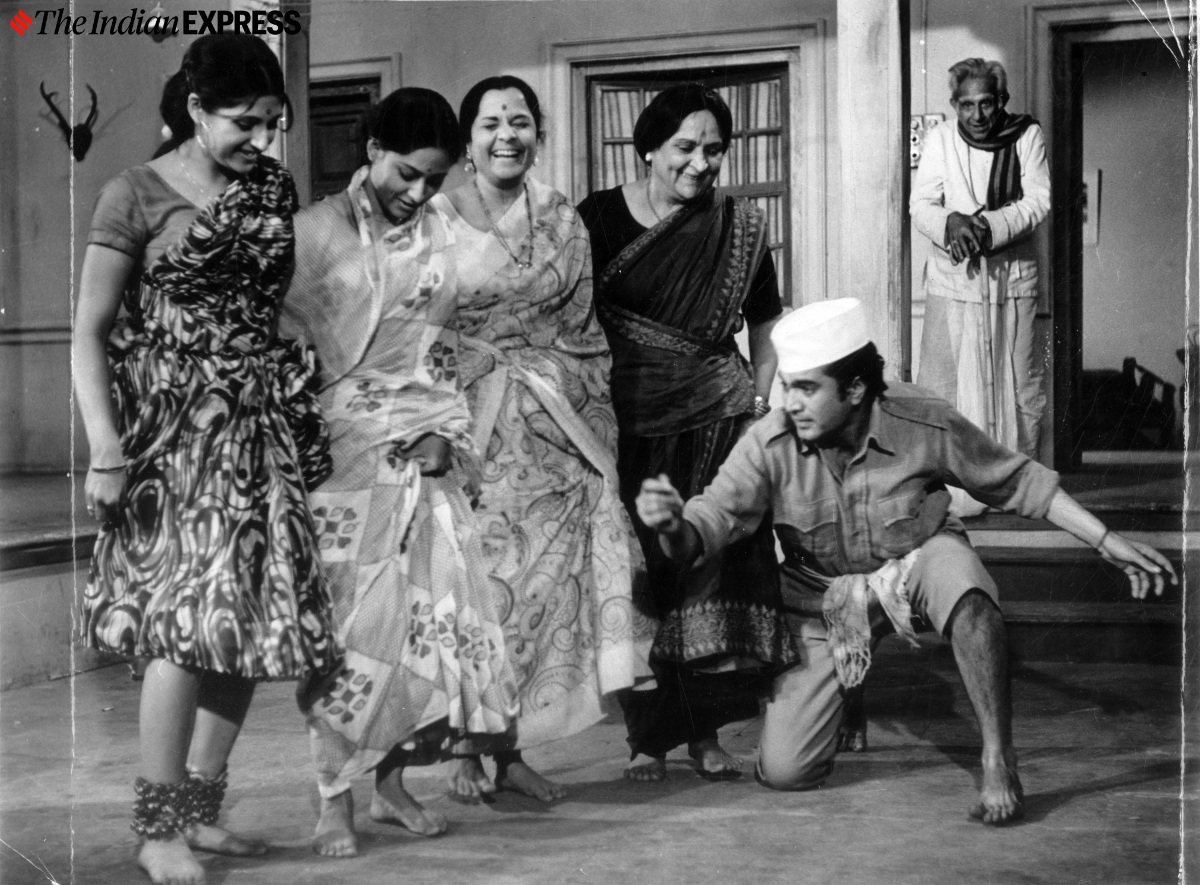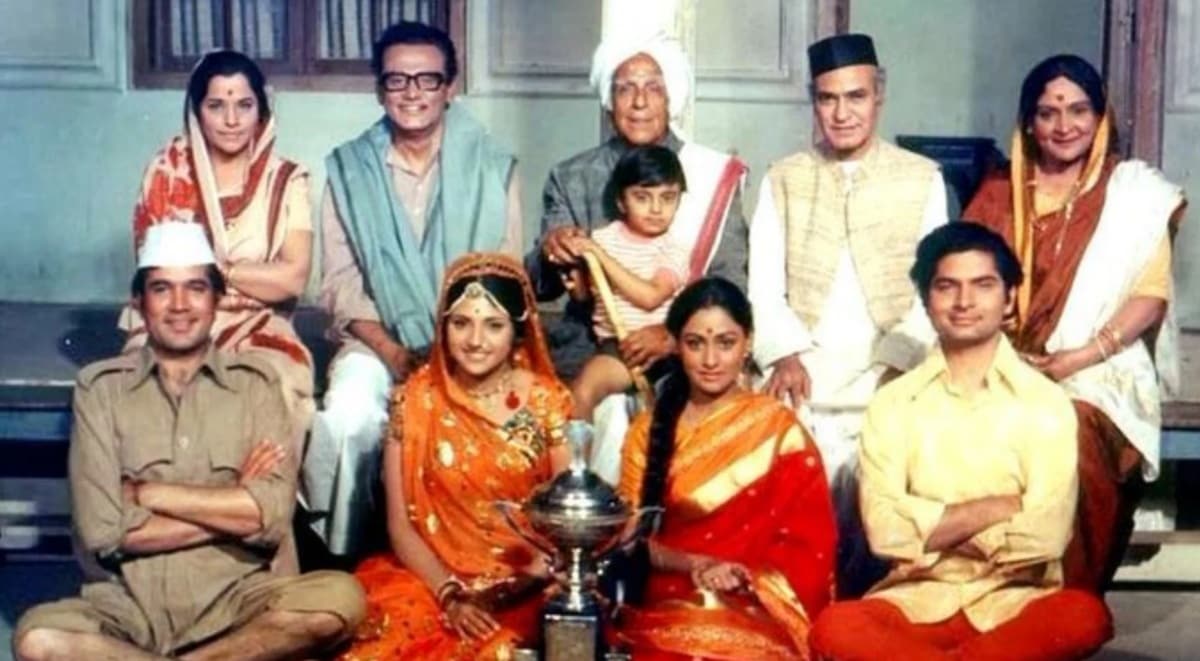 Rajesh Khanna in Hrishikesh Mukherjee's 1972 film Bawarchi.
Rajesh Khanna in Hrishikesh Mukherjee's 1972 film Bawarchi.When Sooraj Barjatya made Hum Aapke Hain Koun (HAHK) in 1994, it turned out to be the film that brought the audience back to the theatres in huge numbers. Of course, Indian cinema had witnessed a few hits in the 1980s and early 1990s but nothing had come close to the kind of success that HAHK saw. In the years since, the film has been discussed at length but the consensus stays that one of the reasons for the success of HAHK and many other Barjatya films is their core – the representation of the Indian family.
Of course, Sooraj Barjatya wasn’t the first person in India who told us that we, as an audience, are suckers for ‘happy families in movies’, but he sure reminded the audience that much like the snow-covered Alps in Yash Chopra films, the concept of a family getting along and being happy was also a fantasy. It was the kind of fantasy that was within our reach but somehow, we couldn’t achieve it. Looking back, this almost-realistic fantasy has been the core of many of Hindi cinema’s popular classics, one of them being Hrishikesh Mukherjee’s 1972 film Bawarchi, starring Rajesh Khanna.
Bawarchi is the story of the dysfunctional Sharma family. Their home, ironically called Shanti Niwas, houses the patriarch, his sons, daughters-in-law, and grandchildren and the big joint family often quarrels on things that would be perceived as insignificant by an outsider, but these are regular middle-class day-to-day problems that dictate their day. ‘Which daughter-in-law will cook? Which son will buy the grocery? Who will do the dishes?’, the family fights over these issues every day because no house help wants to stick around in the chaos of Shanti Niwas, until Raghu. Played by Rajesh Khanna, Raghu is too good to be true. He has a solution for every problem, he can cook up a delicious spread in minutes, and solve domestic disputes even before they occur. In one of the most profound moments of the film, Raghu explains, ‘It is so simple to be happy but it is so difficult to be simple’, which explains the core of this story.
 The Sharma family finds its rhythm, thanks to Raghu. (Photo: Express Archives)
The Sharma family finds its rhythm, thanks to Raghu. (Photo: Express Archives) Bawarchi introduces its characters with a voice-over by Amitabh Bachchan, and through the two-hour run of the film, we follow them in their endeavours as they achieve their personal goals, and eventually achieve harmony in their immediate surroundings as well. Raghu becomes the architect of these moral teachings as he becomes the torchbearer of kindness in this house. He encourages them to support each other, and reminds them beneath the domestic disputes, they love each other unconditionally.
Subscriber Only Stories
Raghu has the aura of an illusionist. His stories keep the family transfixed, even when they are aware that these tales aren’t firmly planted in reality. Subliminally, Raghu gives them a cause that can unite them, even though it is he who might eventually become the villain of their story. When the film eventually reveals Raghu’s true intentions, you accept them because by then, Hrishikesh Mukherjee has made you believe that people are inherently good-natured. Raghu (or Prabhakar) read every book that he could, and learnt every skill that he could think of, but nothing could give him the happiness that he craved. So when he made the decision of using his knowledge to make one’s surroundings a harmonious living space, he knew that families struggling to find their joy were the ones who needed him the most.
 Raghu’s mission in life is to make this world a better place – one household at a time.
Raghu’s mission in life is to make this world a better place – one household at a time. Hrishikesh Mukherjee was a true craftsman when it came to narrating these seemingly simple stories with a sincere message, and his works with Khanna reminded the viewers that there was more to Kaka than the singing-dancing hero. Bawarchi came shortly after Anand, which is one of the most iconic collaborations of the duo, and one can find the resemblance between Bawarchi’s Raghu and Anand’s titular character. Bawarchi also starred Jaya Bachchan (then Bhaduri), Asrani, Durga Khote, Usha Kiran, Paintal, AK Hangal and every character here is whole by themselves yet fits into the puzzle of the Sharma family.
In the years since, Bawarchi has often been regarded as one of the most popular works of Rajesh Khanna as it was one of the 15 hits that he delivered back-to-back at the box office. Years later, David Dhawan used a similar concept in his 1997 film Hero No 1 where the house-help becomes the problem solver of the household.
In 2022, Bawarchi turns 50 years old and still caters to the same fantasy – of living with a family that’s perfectly cohesive, that has risen above its domestic disputes, and where love conquers all. But much like every other fantasy, this one’s just as unreal, even though it might feel well within our reach.
- The Indian Express website has been rated GREEN for its credibility and trustworthiness by Newsguard, a global service that rates news sources for their journalistic standards.

